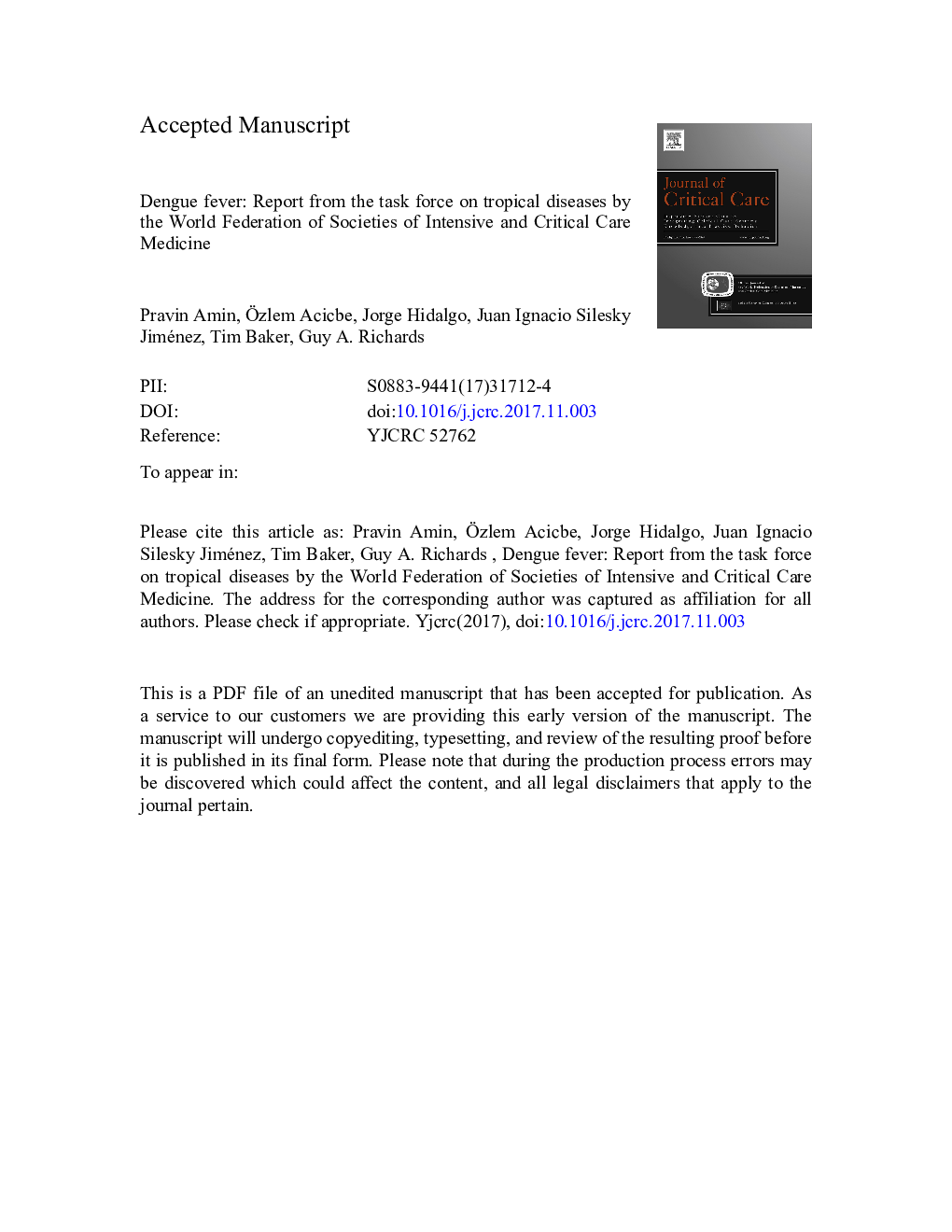| Article ID | Journal | Published Year | Pages | File Type |
|---|---|---|---|---|
| 8620494 | Journal of Critical Care | 2018 | 16 Pages |
Abstract
Dengue is an arbovirus affecting humans and spread by mosquitoes. Severe dengue follows a secondary infection with a different virus serotype. The problem is truly global as it is endemic in over 100 countries. Severe dengue can be a life-threatening because of increased vascular permeability, resulting in leakage of fluid from the intravascular compartment to the extravascular space. When major bleeding does occur, it is almost invariably combined with profound shock since this, in combination with thrombocytopenia, hypoxia, and acidosis, can lead to multiple organ failure and disseminated intravascular coagulation. Dengue hemorrhagic fever and dengue shock syndrome are among the leading causes of morbidity and mortality in patients suffering from Dengue. Commercial rapid tests and ELISA kits are freely available, ensuring early diagnosis. The basis of management of severe dengue is effective fluid replacement. Future directions in management will involve vector control and development of effective vaccination.
Related Topics
Health Sciences
Medicine and Dentistry
Anesthesiology and Pain Medicine
Authors
Pravin MD, Ãzlem MD, Jorge MD, Juan Ignacio Silesky MD, Tim MB ChB PhD, Guy A. MD PhD,
